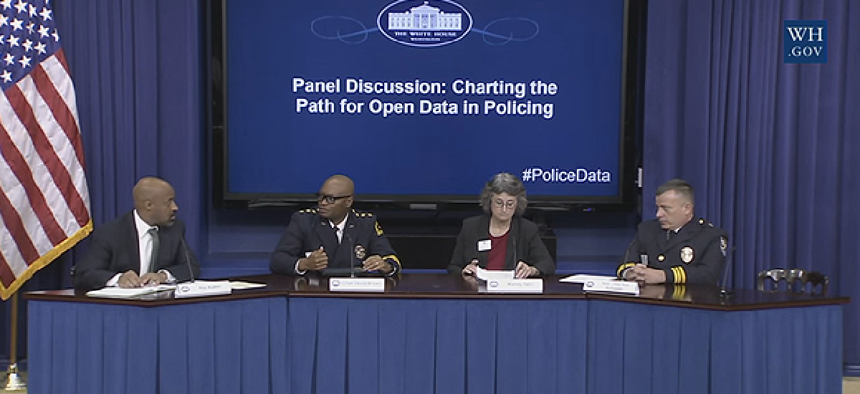One year later: The Police Data Initiative celebrates growth


Connecting state and local government leaders
Participation in the Police Data Initiative has grown to 53 jurisdictions, which have released over 90 datasets of information to the public.
The White House celebrated the first anniversary of the Police Data Initiative last week by announcing a number of new police departments and public and private sector organizations that have joined the program to increase transparency in law enforcement data.
When it was first created last April, 14 jurisdictions across the country committed to the initiative. Since then, participation has grown to 53 participating law enforcement agencies, which have released over 90 datasets of information to the public.
In addition to law enforcement, the initiative is supported by a number of private sector and nonprofit organizations providing digital tools and assistance with opening and interpreting data. Socrata, an open data company, is offering PDI participants discounts for the remainder of the year to its public safety starter kit to help them publish police data and create a map-based interface for viewing crime data. Esri will host a series of webinars to show law enforcement agencies how they can use technology they already possess to begin sharing information.
Other participants include the International Association of Chiefs of Police, GovDelivery, OpenGov and Safe Software.
Robert Schroeder, the assistant chief of the Louisville Metro Police Department, said the Kentucky city has released datasets on arrests, citations, hate crime and officer-involved shootings as well as its own transparency page to help newcomers with datasets.
Chief David Brown of the Dallas Police Department said joining the initiative and releasing more than 10 years of data has led to a significant decrease in not only police complaints, but also criticisms from the press and public.
“Releasing this data has built quite a bit of trust with the public,” Brown said during an April 22 panel on the initiative. “Excessive force complaints have reduced by 51 percent from last year, and we’ve only had four so far this year. The media embraced the release of data as a positive, but the data has put us in position to open dialogue with even our most critical citizens.”
The Justice Department also pledged support to the PDI. The Office of Community Oriented Policing Services will further advance the initiative through programs that provide organizational support to law enforcement agencies. The Office on Violence Against Women will contribute to the PDI by creating a resource to help jurisdictions opening crime data balance the release of data with the protection of victims’ privacy.
Chief Brown said the effect the PDI has had on his department’s officers and the citizens they’re tasked to protect is significant and that everyone who has joined the PDI should feel the same way.
“The value of what you’re building in the community by being transparent with your data will pay dividends for generations.”

NEXT STORY: 5 projects take home Igniting Innovation awards




